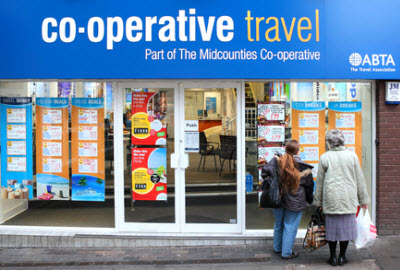ABTA Travel Agents Neglect Disabled People Rights?
- Written by Roberto Castiglioni
 Eight months after our first review on information UK travel agents provide disabled passengers little has changed, especially among ABTA members.
Eight months after our first review on information UK travel agents provide disabled passengers little has changed, especially among ABTA members.
Last August, Reduced Mobility Rights assessed 38 websites of popular travel agents. The audit found that only ten per cent of all sites provide sufficient information; 70% provide insufficient information; 20% did not provide any information at all. The vast majority of these websites belong to ABTA members.
Following our investigation, ABTA pledged to take swift action on those members found not providing information essential to passengers with special needs. In a meeting held at the end of August 2013 Susan Parsons and Gillian Edwards of ABTA agreed more needs to be done to improve the quantity and quality of information available to passengers with special needs on members’ websites.
But what is considered essential information for disabled people? Article 4.3 of Regulation EC1107/2006 states that airlines and their agent shall make publicly available the safety rules that apply to the carriage of disabled persons and persons with reduced mobility, as well as any restrictions on their carriage or on that of mobility equipment. Article 6.1 requires airlines, their agents, and tour operators ensure receipt of notifications of the need for assistance made by disabled persons or persons with reduced mobility at the time of booking.
The European Commission Passenger Rights Unit recently issued a statement on the issue of essential information. “The provision of accessible information prior to booking is seen as an essential element to allow PRM passengers to prepare their journey in full knowledge of all safety rules and possible restrictions an air carrier may apply. Air carriers, their agents and tour operators should also develop accessible websites for the use of passengers with a visual impairment alongside other passengers instead of developing separate websites.”
ABTA’s Pre-Notification Guidance published in July 2012 states that that easily accessible links to the section containing information for disabled passengers should be available on online travel agents websites' homepage. Dedicated pages should also clearly explain users how they should record and notify their requests for assistance.
Last October, MS sufferer John Findlay complained that Glasgow based Barrhead Travel allegedly told him an on board wheelchair would be available on Jet2 flights. The information proved to be wrong, and the man spent a total of 11 gruelling hours without being able to move from his seat.
“There may well have been a misunderstanding or a mistake as to the exact nature of Mr Findlay’s requirements, but  that in itself does not amount to a breach of the Regulations,” a spokesperson for the Association of British Travel Agents said about Mr Findlay’s incident.
that in itself does not amount to a breach of the Regulations,” a spokesperson for the Association of British Travel Agents said about Mr Findlay’s incident.
Has ABTA delivered on its promise to ensure greater compliance among its members? Last August Justtheflight.co.uk was listed as one of the ABTA members who fail to provide any kind of essential information.
Reduced Mobility Rights reminded ABTA about this member’s non-compliance on 25 January 2014. To date, nothing has changed. However, ABTA said they “will continue working with our members on accessibility generally to ensure that all passengers receive a quality experience.”
Delivering essential information to disabled people can be done. In fact, two ABTA members stand out for the right reasons. NetFlights.com and The Co-operative Travel are living example that compliance can be easily achieved. Both websites feature a direct link to their special assistance page which provides all essential information for disabled people.
 Unfortunately, the vast majority of ABTA members remain on the non-compliance list. We are not only talking about smaller operations. ABTA member American Express Travel does not provide any information essential to passengers with disabilities.
Unfortunately, the vast majority of ABTA members remain on the non-compliance list. We are not only talking about smaller operations. ABTA member American Express Travel does not provide any information essential to passengers with disabilities.
Window dressing operations like the revision of ABTA’s Guidance on disability are clearly insufficient to deliver equality in the travel industry. Aside from glossy words, in the last eight months the association’s only notable action was to take defence of its member’s Barrhead Travel mistake.
Travel agents’ failure to comply with passenger rights laws did not go unnoticed. “We always prioritise issues where there is the greatest consumer harm, and as the regulator, we are determined to ensure legislation designed to protect the rights of passengers with disabilities is fully complied with," a spokesperson for the UK Civil Aviation Authority said. "We work closely with the travel industry to make sure knowledge of the rules and regulations are fully understood.”
Reduced Mobility Rights understands that good practice issues like the provision of correct and accessible information about any limitations on-board, including the absence of on-board wheelchairs, will be discussed in the upcoming meeting of the European Commission Passenger Rights Unit with National Enforcement Bodies which will take place in Brussels on 18 February. Going forward, there will be less room for complacency and empty words.










